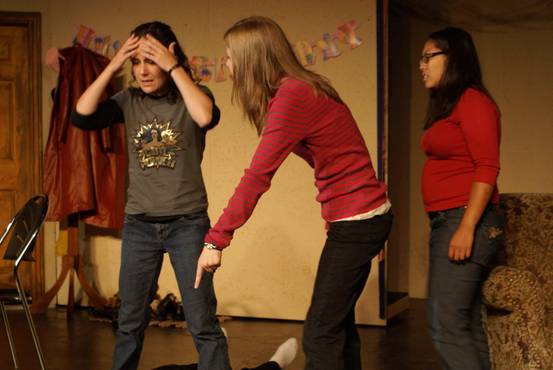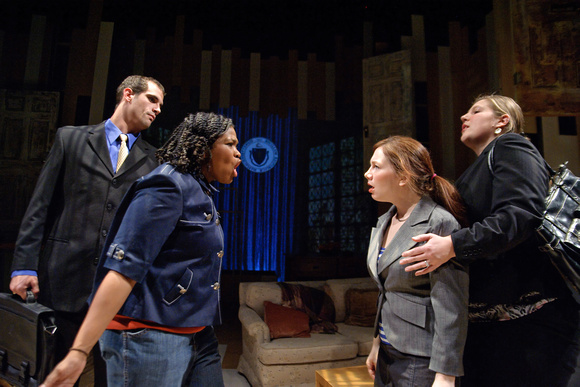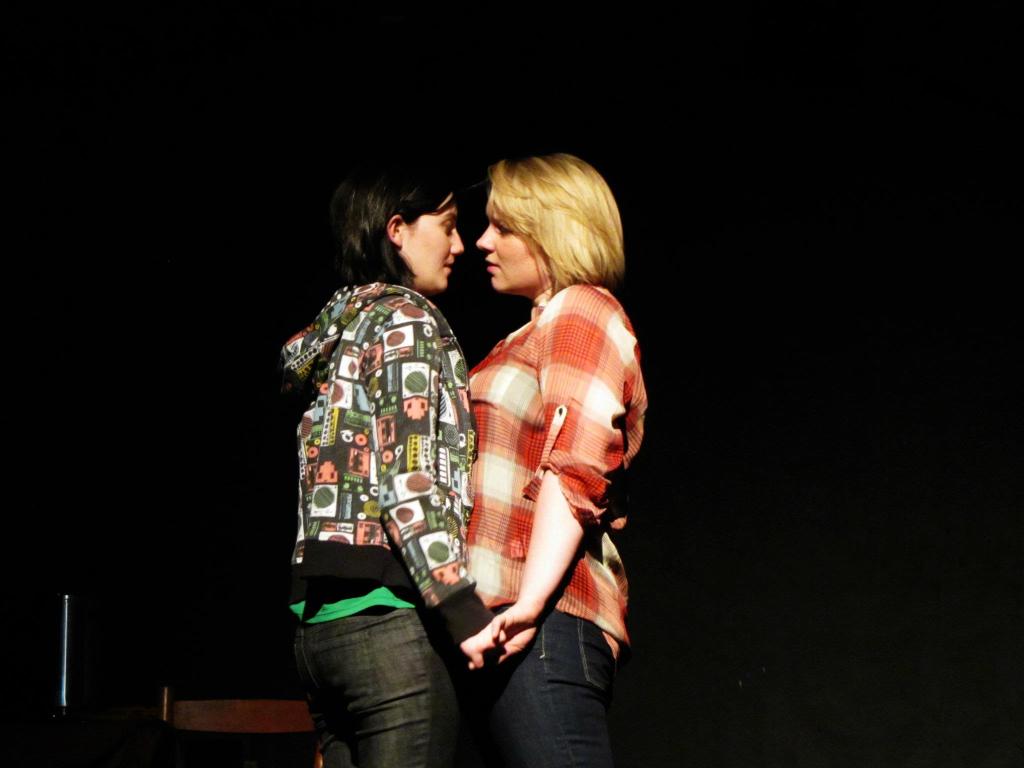|
Jacqueline Lawton: How long have you lived and worked as a playwright in DC? What brought you here? Why have you stayed?
Rebecca Gingrich-Jones: I've lived in DC for eight years now - can't believe it's been that long! I came here fresh out of undergrad without much direction, but knowing DC had a good women's rugby team that I could play for. It took me a while to get back into playwriting once I moved here, but then I quit teaching in 2008 to get an MFA at Catholic University. I graduated last year and have continued finding and making opportunities for myself in the area, so it seems like a good place to stay and make my art. JL: Have you ever been a member of a DC area playwrights writing group? If so, did you find it useful? Would you recommend that other playwrights join them? RGJ: I found a lot of support in my workshop classes at CUA, and liked the structure of sharing new pages every week. That's something I've missed since graduating, but on the other hand, sometimes I also need time to write in isolation. When the work is very new I can sometimes get too influenced by outside critiques - I try to find the balance where I trust the work and am also ready to hear how it sounds to others. JL: In DC, we have the Capital Fringe Festival, the Source Theatre Festival, the Kennedy Center's Page-to-Stage Festival, the Black Theater Festival, and the Hip Hop Theatre Festival. We also have the Mead Lab at Flashpoint Theater Lab Program. Have you participated in any of these? If so, can you speak about your experience? RGJ: And, now we have the DC Queer Theatre Festival too! Matt Ripa, Alan Balch and I co-produced the first annual festival with the DC Center this year in May (featuring new work by DC-area playwrights) and we'll be bringing it back in 2013 and beyond. As far as other festivals, I've had good - and challenging - experiences at the Capital Fringe Festival, and mostly think it's a great opportunity for producing new work. I've also had readings at Page-to-Stage and appreciate being able to hear new work in front of an audience. JL: What kind of work do you do to pay the bills? How do you balance this work with your writing? RGJ: This year I was very honored to receive a grant from the Maryland State Arts Council that has allowed me to write essentially full time for several months. Now it's time to find another day job, and I'd be glad for any leads! This spring I was a teaching artist with Wobble Rocket Productions in Alexandria - I enjoy educating the next generation of theater artists, and being able to get paid for work related to my profession. JL: How many plays have you had produced in the DC area? Were any of these plays self-produced? If so, where and what did you learn from that experience? RGJ: I've had four plays produced in the area: The Furies was commissioned by Active Cultures for their Sportaculture festival, She Said/She Said was produced at CUA as my thesis, The Teacher's Lounge was my first play in the Fringe Festival, and I co-produced Singing Eggs and Spermless Babies (with music by Ben Shallenberger) at the Fringe Festival. It was a lot of work being a producer, and playwright, and in that case acting in the play as well! I think my big takeaway from that experience was to enjoy myself despite the stress and challenges - that's why I'm a playwright, for the love of writing and theater, so it doesn't make sense to get too freaked out. JL: If you could be produced at any theatre in DC, which would it be and why? RGJ: I love the work at Woolly Mammoth, Theater J, Forum - there are too many to choose! I like theaters that make new plays a priority. Classics are great, but even as an audience member I love watching plays that speak to where we are as a culture and human beings in the 21st century. JL: DC audiences are ... RGJ: Diverse and smart, and I think hungry for new plays. JL: DC actors, designers and directors are ... RGJ: Fun to work with. We have lots of talent in DC and I want to see theaters continue to take advantage of that, without always looking to New York. JL: DC critics are ... RGJ: Getting better about championing new work. JL: How do you feel the DC theatre community has addressed the issues of race and gender parity ? How has this particular issue impacted you and your ability to get your work produced on the main stages? RGJ: I don't think enough has been done to achieve race and gender parity at most theaters. If a theater doesn't consciously make parity a priority, then the status quo, which still favors white men, will continue to prevail. JL: What advice do you have for an up and coming DC based playwright or a playwright who has just moved to D.C.? RGJ: Get involved with the DC-Area Playwrights Group, which Gwydion Suilebhan and I founded last year! Join the online discussions on the Facebook group and meet up for the events that get planned throughout the year. And for any artists anywhere, develop and deepen your spiritual practice to give you strength when you start to doubt your talent or ability to "make it." JL: What's next for you as a playwright? Where can we keep up with your work? RGJ: I'm working on the first draft of a new comedy, and I have a production or two in the pipeline that I'll be announcing soon on my website, rgingrichjones.com.
0 Comments
Your comment will be posted after it is approved.
Leave a Reply. |
My BlogI'm a playwright, dramaturg, and teaching artist. It is here where you'll find my queries and musings on life, theater and the world. My posts advocate for diversity, inclusion, and equity in the American Theatre and updates on my own work. Please enjoy!
Categories
All
Archives
June 2020
Reading List
|



